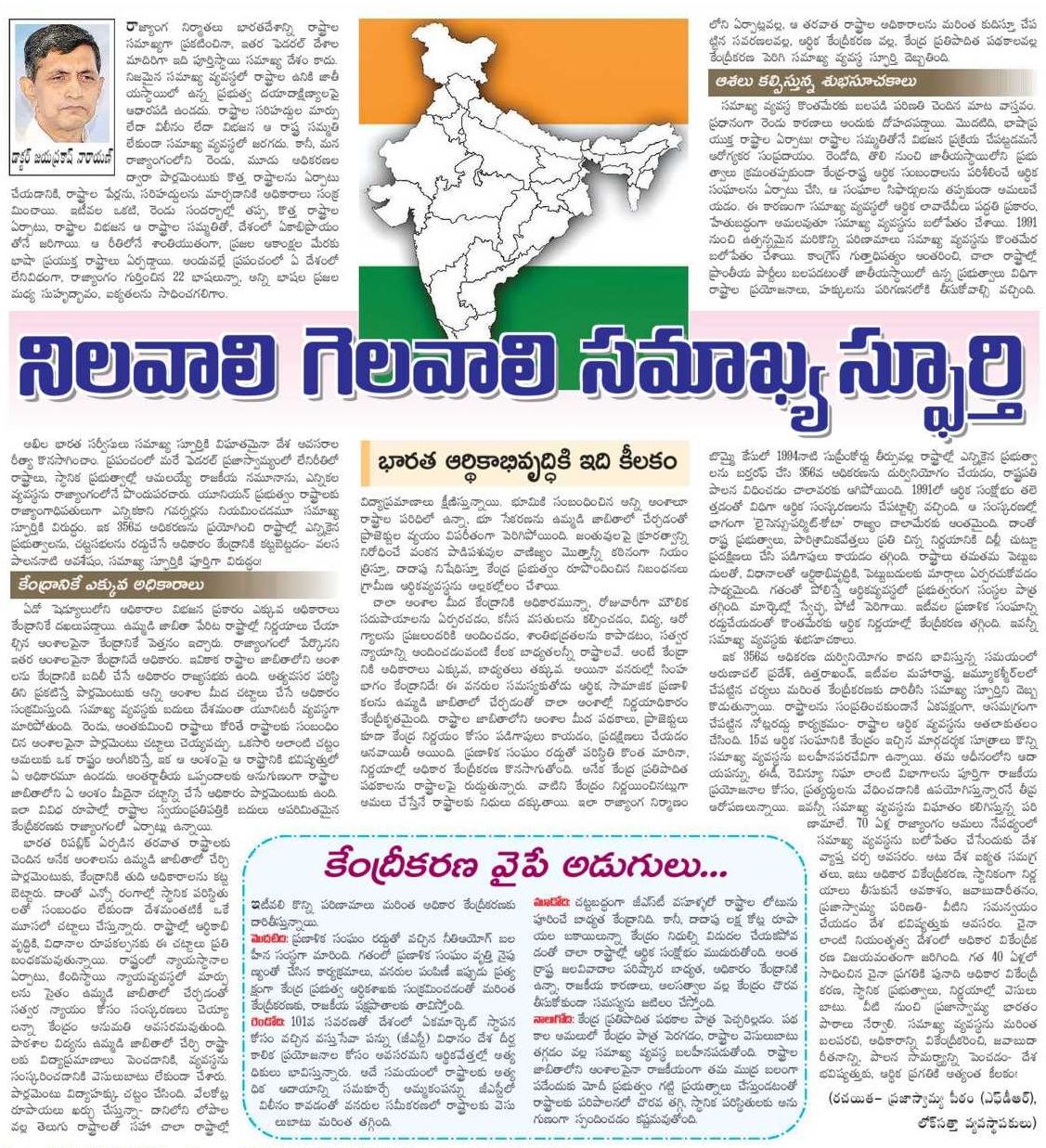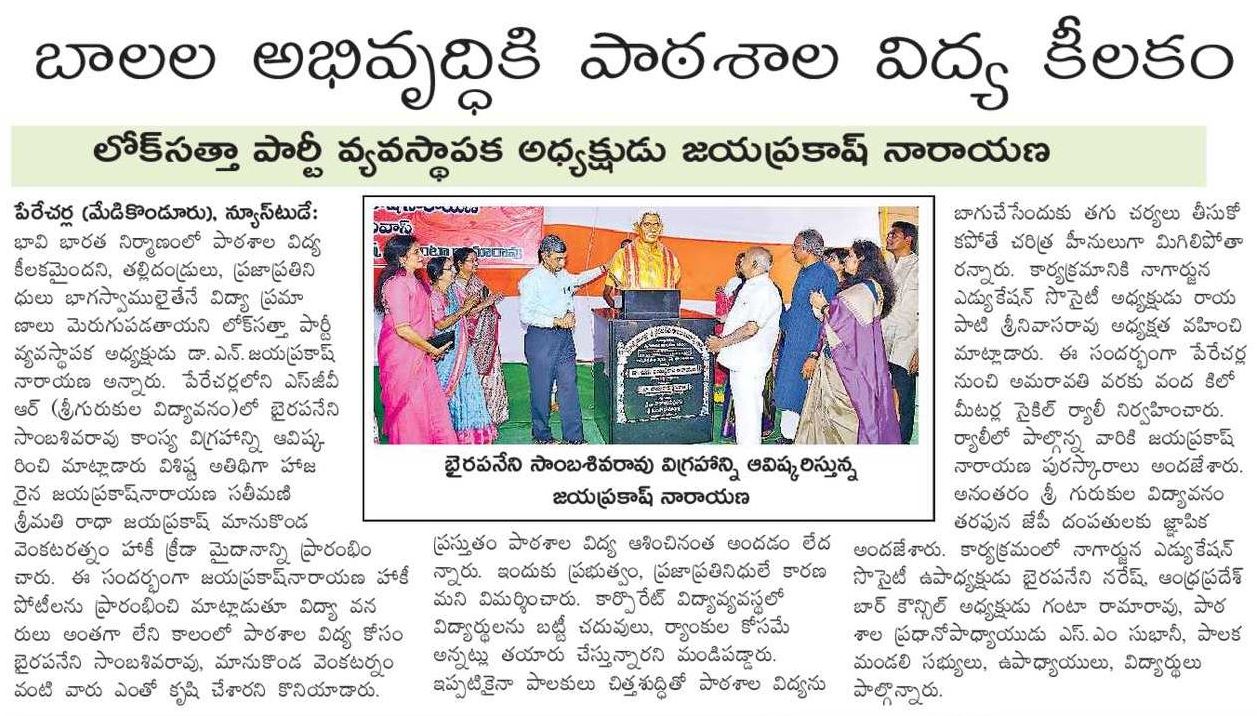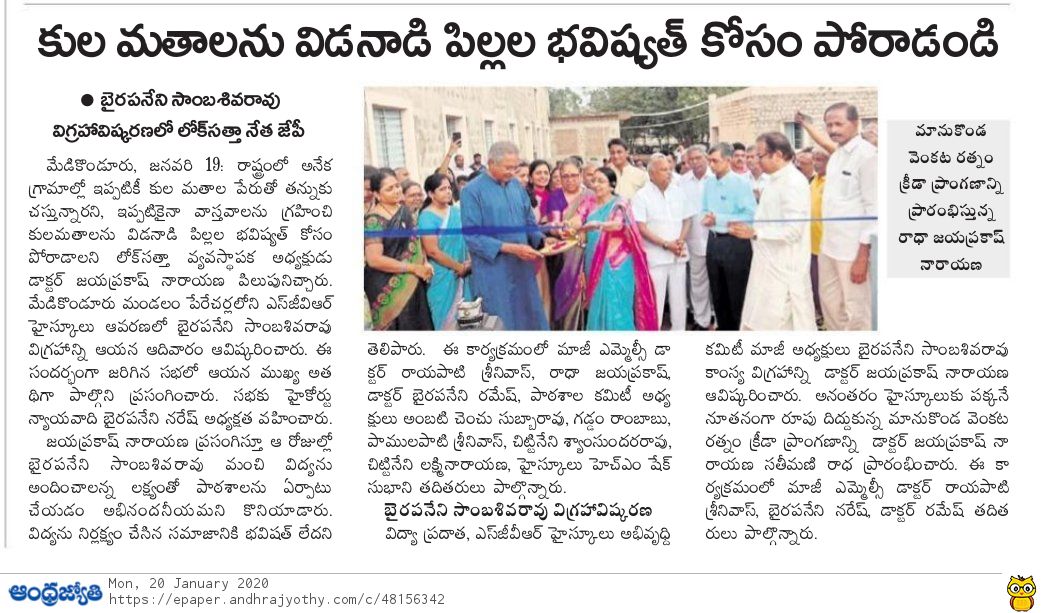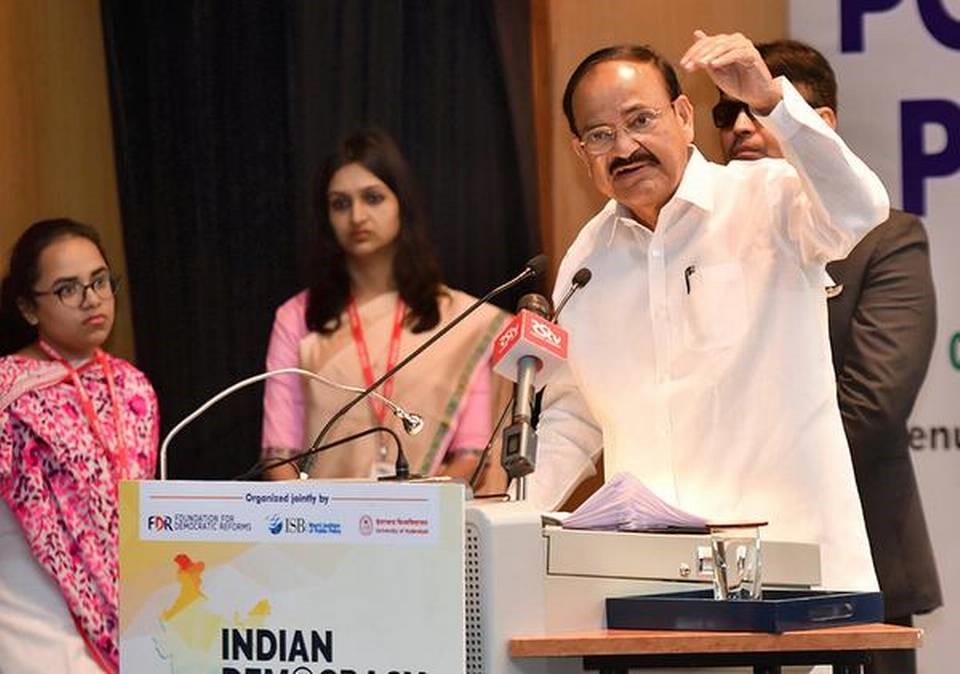నిలవాలి గెలవాలి సమాఖ్య స్ఫూర్తి





‘Of the 533 Lok Sabha members, 475 are crorepatis’
Hyderabad: Vice President M. Venkaiah Naidu has called upon political parties to seriously consider the option of simultaneous elections right from panchayats to Parliament, across the country, to bring down the cost of holding elections by the Election Commission of India and also the expenditure by the political parties.
Apart from legitimate election expenditure, he said rise of illegitimate expenditure on vote buying is a great concern as it is making only the rich to be more qualified to become an MP, MLA -- than a well-qualified public spirited person.
“Of 533 candidates elected to the 17th Lok Sabha, 475 accounting for 88% are ‘crorepatis’. This paradox of poor India with rich Parliamentarians is raising concerns about growing role of money power in politics,” he said.
The Vice President was the chief guest at the inaugural session of the first annual national conference on ‘Indian Democracy at Work’ with the theme ‘Money power in politics’ organised by the Foundation for Democratic Reforms, ISB-Bharat Institute of Public Policy and University of Hyderabad at ISB here on Thursday.
Complimenting Dr. Jayaprakash Narayan, general secretary, FDR, for his sustained efforts for generating public awareness about clean politics and its merits, the Vice President called for fixing governance system and effective regulation of political finance along with bold reforms to break the vicious cycle of corruption and erosion of quality of democratic polity.
Any reform would be opposed in the beginning but it would benefit every citizen, political parties and government in the end, he said.
To check this trend, political parties must be made accountable for implementing their promises and there must be a ceiling on populist announcements based on the budgetary resources of a local body, State and the Centre on the lines of FRBM Act, Mr. Venkaiah Naidu said.
He said Election Commission alone can not control money power in elections and politics and it is the responsibility of political parties, government and the voters.
A voter would forfeit the right to question the government when he compromises on morals and accepts gift or cash for his vote. It is crucial to plug the loopholes in the anti-defection law to make democracy accountable and transparent, he said.
He appealed to the citizens to vote in elections based on character, conduct, calibre and capability of the candidates and not based on cash, caste, community and criminal prowess. That would be the ultimate solution to check money power in politics, he said.
Earlier Dr. Jayaprakash Narayan said Indian democracy ensured peaceful transfer of power through elections and people cherish their freedom but shortcomings should be addressed to make democracy deliver better, he said. About Rs.1 lakh crore was spent on elections, most of it unaccounted, during the cycle of five years, undermining Indian democracy.
Prof. P. Appa Rao, Vice-Chancellor, University of Hyderabad, said university campuses should become the laboratory for reforms.
Mr. Rajendra Srivastava, Dean, Indian School of Business, proposed a vote of thanks.
Courtesy: The Hindu
The BJP General Secretary Quotes Nehru & Marx At ISB Meet
Hyderabad: BJP general secretary Ram Madhav seemed to be in a candid mood at a conference at the Indian School of Business (ISB) on Friday as he told the audience that politicians divide society, based on caste for electoral gains. He however added not all caste as an institution was not bad.
He also suggested forming a separate Election Commission cadre as part of electoral reforms to avoid political interference during elections, even as he quoted Jawaharlal Nehru and Karl Marx in his speech.
Speaking at the two-day 'Money power in politics – Indian democracy at work’ annual conference, Madav batted for a liberal democracy and liberal constitutionalism.
He observed that society could run on its own without the interference of the government for 90% of its affairs. According to him, government was needed only for 10% of the time.
He even said that it was ok to lose an election for sake of good governance.
“Indian society was never government-centric, but governments have increasingly made people heavily dependent on them," he said and added that power should be contained and regulated.
Madhav did not hesitate to quote India’s first prime minister Jawaharlal Nehru during his speech. “Nehru was once asked why he was so fascinated by democracy,” he said. “He answered democracy was the second-best available form. He was against asked what the best form was. Nehru answered it was yet to be invented. We are following the best available form of democracy.”
He added, “In democracy, people are supposed to be masters. ‘Government of the people’ is being done, but ‘government for the people’ is partly true and ‘government by the people’ is not followed. The biggest challenge is to make democracy more liberal.”
Madhav quoting Karl Marx’s principle of the ‘withering away of the state’ said that that it is those who are in power who won't allow it to happen. He said Lenin refused to wither away the state as he enjoyed power.
“I am not saying we have to leave it to anarchy. There should be minimum interference of the government, that too at a local level.”
‘Caste is good, not casteism’
Speaking about the caste system, Ram Madhav said, “The previous varna system is gone but caste system exists in a different form. Caste is good. I am not propagating casteism in the country. As an institution, caste can do good for a community like many social and religious intermediaries. It was religious bodies that fed the hungry and not the kings those days. Once hunger is mitigated, every citizen can be productive.”
‘Need our own version of prez govt’
Ram Madhav believes that the country should slowly move towards its own version of a presidential form of government. “Politics today follows a highly incentivized model,” he said.
“The presidential system may disincentivize politics, but there are many other ways. Every new law made is bondage for the people. We should have laws that reduce responsibilities.”
Courtesy: The Times of India